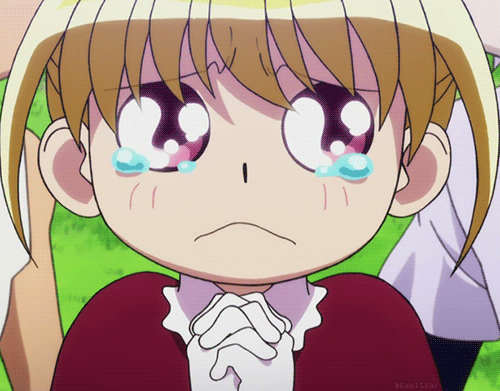Post by JACK-2 on Sept 29, 2017 16:44:14 GMT -5
Best Buy's attempts to fend off the looming retail apocalypse took a huge hit on Tuesday.
At its first investor day since 2012, the company issued long-term forecasts that fell short of analyst expectations, stoking fears that mounting competition from the likes of Amazon will eat into future profits.
The reaction from investors was swift and punishing, as Best Buy's stock dropped as much as 10% to $51.61, wiping out roughly $1.7 billion in market value at its lows for the day.
Analysts surmised that it was the company's fiscal 2021 revenue and profit estimates that drew the ire of traders. Best Buy forecasted that sales would hit $32 billion by then, which comes out to a 2.2% compound annual growth rate. Bloomberg Intelligence analyst Charles Allen described it in a client note as "not a great number."
Going beyond sales, RBC Capital Markets analyst Scot Ciccarelli highlighted Best Buy's earnings estimate of $4.75 to $5 a share, which he said implied a growth rate of 8% to 9% that was "somewhat below investor expectations." However, he didn't go as far as to downgrade the stock, keeping it at "sector perform," or neutral.
Also mentioned by Best Buy was a previously-stated plan to reach cost savings of $600 million by the end of 2021. According to Allen, this forecast implied that prices may have to be lowered in the future amid continued competition — a conclusion that investors selling shares may not have liked.
Best Buy's share-crushing forecasts don't stem from a lack of trying. In late August, the big box retailer announced an expansion to its same-day delivery service, a strategic move viewed as a direct response to the aggressive encroachment from Amazon and other competitors.
Even amid Tuesday's stock decline, at least one analyst remained bullish on the stock's prospect: David Schick of Consumer Edge Research. He praised the company's strategy of investing in its own business, saying that it's the "right way" to go about things amid the looming spectre of Amazon.
The company itself also remains confident. It's grown domestic sales in each of the past three years, and beaten analyst revenue estimates in six of the past seven quarters, according to spokesman Jeff Shelman. He also points to Best Buy's "huge" online growth numbers, and notes that the company has already increased its financial guidance for 2017 on two occasions this year.
It remains to be seen if the short-term pain felt by Best Buy following this round of preemptive guidance will serve it well in the longer term. The company is clearly trying to get out ahead of any future slowdown. And now that some pressure has been removed from its stock price, it can drill down on fundamentals and try to claw its way back.
www.businessinsider.com/amazon-led-retail-apocalypse-sends-best-buy-stock-price-plunging-10-2017-9
At its first investor day since 2012, the company issued long-term forecasts that fell short of analyst expectations, stoking fears that mounting competition from the likes of Amazon will eat into future profits.
The reaction from investors was swift and punishing, as Best Buy's stock dropped as much as 10% to $51.61, wiping out roughly $1.7 billion in market value at its lows for the day.
Analysts surmised that it was the company's fiscal 2021 revenue and profit estimates that drew the ire of traders. Best Buy forecasted that sales would hit $32 billion by then, which comes out to a 2.2% compound annual growth rate. Bloomberg Intelligence analyst Charles Allen described it in a client note as "not a great number."
Going beyond sales, RBC Capital Markets analyst Scot Ciccarelli highlighted Best Buy's earnings estimate of $4.75 to $5 a share, which he said implied a growth rate of 8% to 9% that was "somewhat below investor expectations." However, he didn't go as far as to downgrade the stock, keeping it at "sector perform," or neutral.
Also mentioned by Best Buy was a previously-stated plan to reach cost savings of $600 million by the end of 2021. According to Allen, this forecast implied that prices may have to be lowered in the future amid continued competition — a conclusion that investors selling shares may not have liked.
Best Buy's share-crushing forecasts don't stem from a lack of trying. In late August, the big box retailer announced an expansion to its same-day delivery service, a strategic move viewed as a direct response to the aggressive encroachment from Amazon and other competitors.
Even amid Tuesday's stock decline, at least one analyst remained bullish on the stock's prospect: David Schick of Consumer Edge Research. He praised the company's strategy of investing in its own business, saying that it's the "right way" to go about things amid the looming spectre of Amazon.
The company itself also remains confident. It's grown domestic sales in each of the past three years, and beaten analyst revenue estimates in six of the past seven quarters, according to spokesman Jeff Shelman. He also points to Best Buy's "huge" online growth numbers, and notes that the company has already increased its financial guidance for 2017 on two occasions this year.
It remains to be seen if the short-term pain felt by Best Buy following this round of preemptive guidance will serve it well in the longer term. The company is clearly trying to get out ahead of any future slowdown. And now that some pressure has been removed from its stock price, it can drill down on fundamentals and try to claw its way back.
www.businessinsider.com/amazon-led-retail-apocalypse-sends-best-buy-stock-price-plunging-10-2017-9





